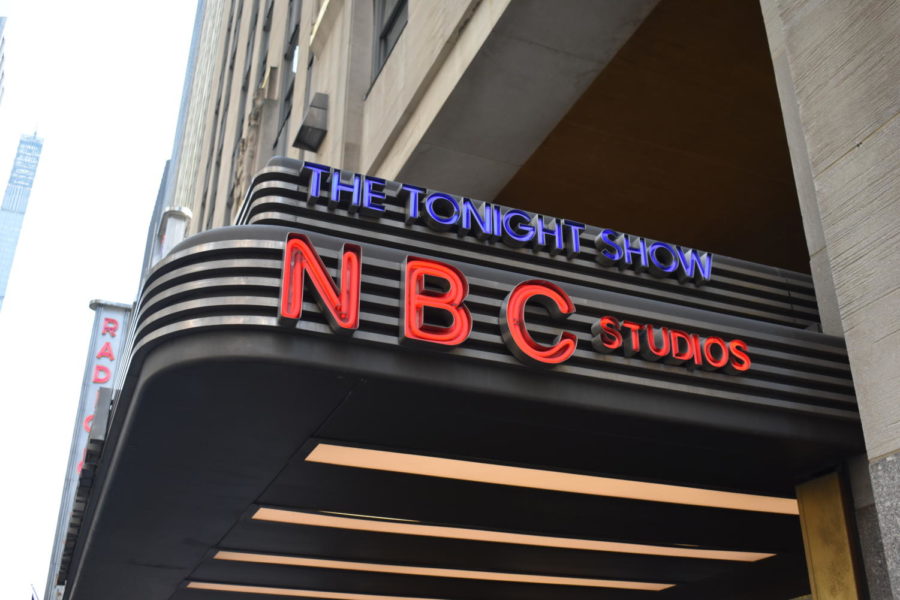Late night shows face uncertain future in new era
Late night shows are facing an uncertain future as viewers are changing the way they watch comedy, with YouTube granting instant access to shows.
May 16, 2023
The classic Americana tradition of watching late night shows is rapidly changing along with our culture.
Gone are the days of adults–and children too–huddling to watch Johnny Carson or David Letterman on the TV. Now in today’s digital age and with the rise of streaming, segments from shows can be easily found on YouTube, with monologues by hosts racking up thousands of views daily.
But as some hosts succeed, others are taking a step aside.
A duo of Saturday Night Live alums–Jimmy Fallon and Seth Meyers–don the halls of NBC’s late night programming with “The Tonight Show” and “Late Night,” respectively.
Both have cemented their status at NBC, due to celebrate their 10th year of hosting in 2024, with Fallon’s array of creative games with his guests and Meyers’ “A Closer Look” segment–characterized as a “good 15 minute rant on the day’s events”–being comedy gold for their shows.
Recently celebrating his 20th year hosting Jimmy Kimmel Live, Jimmy Kimmel has been ABC’s mainstay key to success in the market, with the network only opting for one late night show.
However for CBS, while Stephen Colbert controls their 11:30 pm slot with “The Late Show” and was the most watched late night show per the New York Times in 2022, James Corden left The Late Late Show in April 2023.
Segments like “Carpool Karaoke” helped Corden rise to fame, but Corden cited that “[it is] a good time to move on and see what else might be out there” adding he will return to England for family reasons. There will be no new host after Corden due to CBS officially canceling “The Late Late Show” series.
Comedy Central is also facing the same fate after “The Daily Show” host Trevor Noah also stepped down in December 2022. Noah being from South Africa brought a unique perspective to U.S. current events, delighting his audience. He told them that he has “another part of my life that [he] want[s] to carry on exploring.” Currently, weekly guest hosts are filling in until a new host is found.
Society changing affects the status quo of late night programming, as well as with the rise of social media pulling attention away from TV. The end of the Trump presidency was instrumental in the initial wave of change, due to an end of a four year walk in the park with endless punchlines about the former president.
Now, in a time of new awareness of societal issues, late night segments have diversified into shedding light on these concerns through a non-traditional, comedic lens, and despite TV executives noting sinking ratings and viewing producing shows as no longer viable, Meyers, Fallon, and Colbert have all extended their contracts with their networks into the mid-2020s.
But new challenges arise daily, one of these being the Writers Guild of America going on strike at the start of May, with writers–the geniuses behind the many jokes on late night–asking the studios for compensation from streaming services, higher pay for services, and job protection from AI.
All of the late night shows have stopped until further notice and hosts have expressed their loyal support to their writers.
So as time moves on past the strike, late night shows adapt to changes, and with a deeper understanding of pressing issues affecting Americans, seek to both be a journalistic beacon of information, while continuing to provide iconic funny jokes and punchlines delighting viewers.

